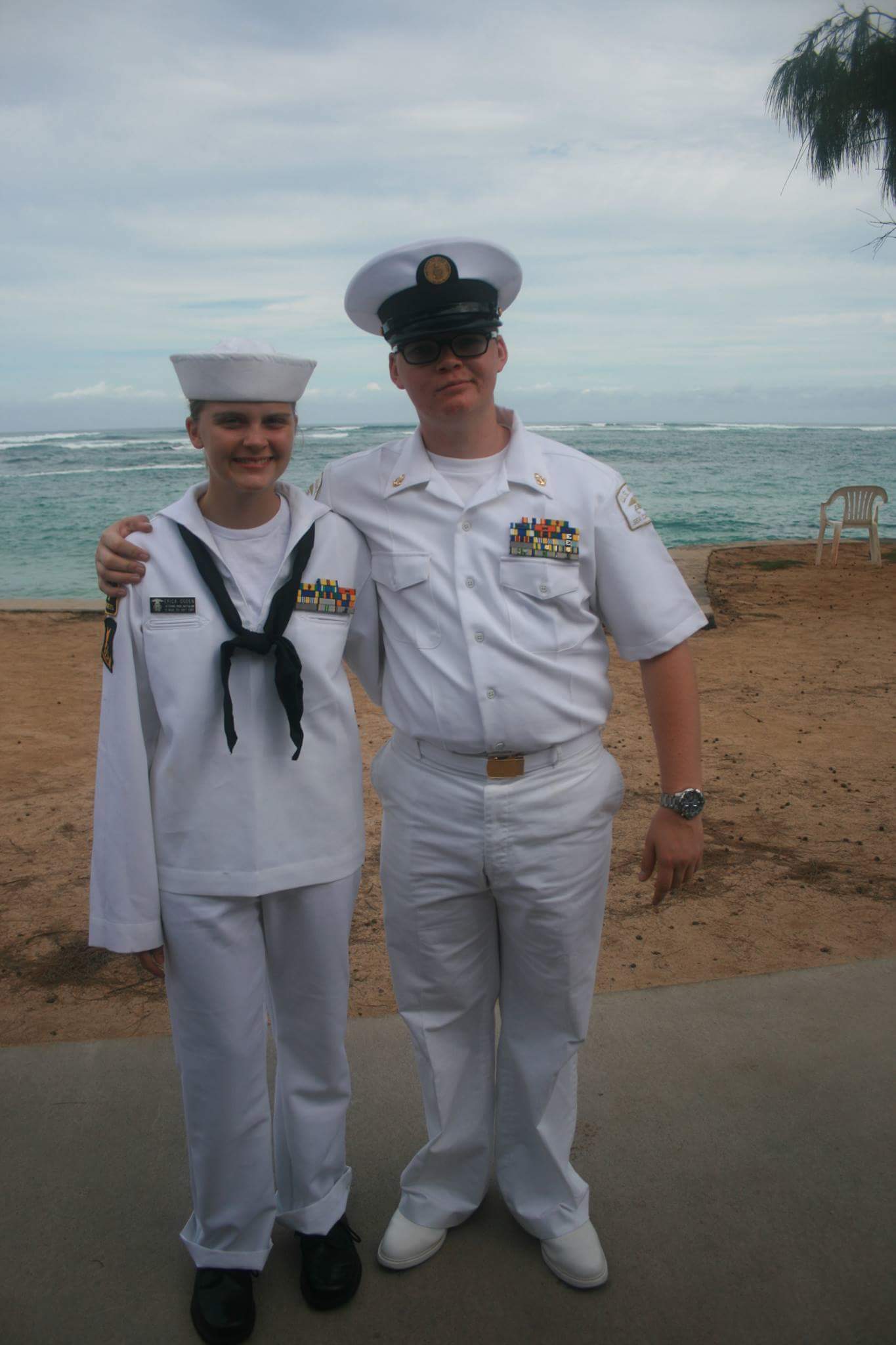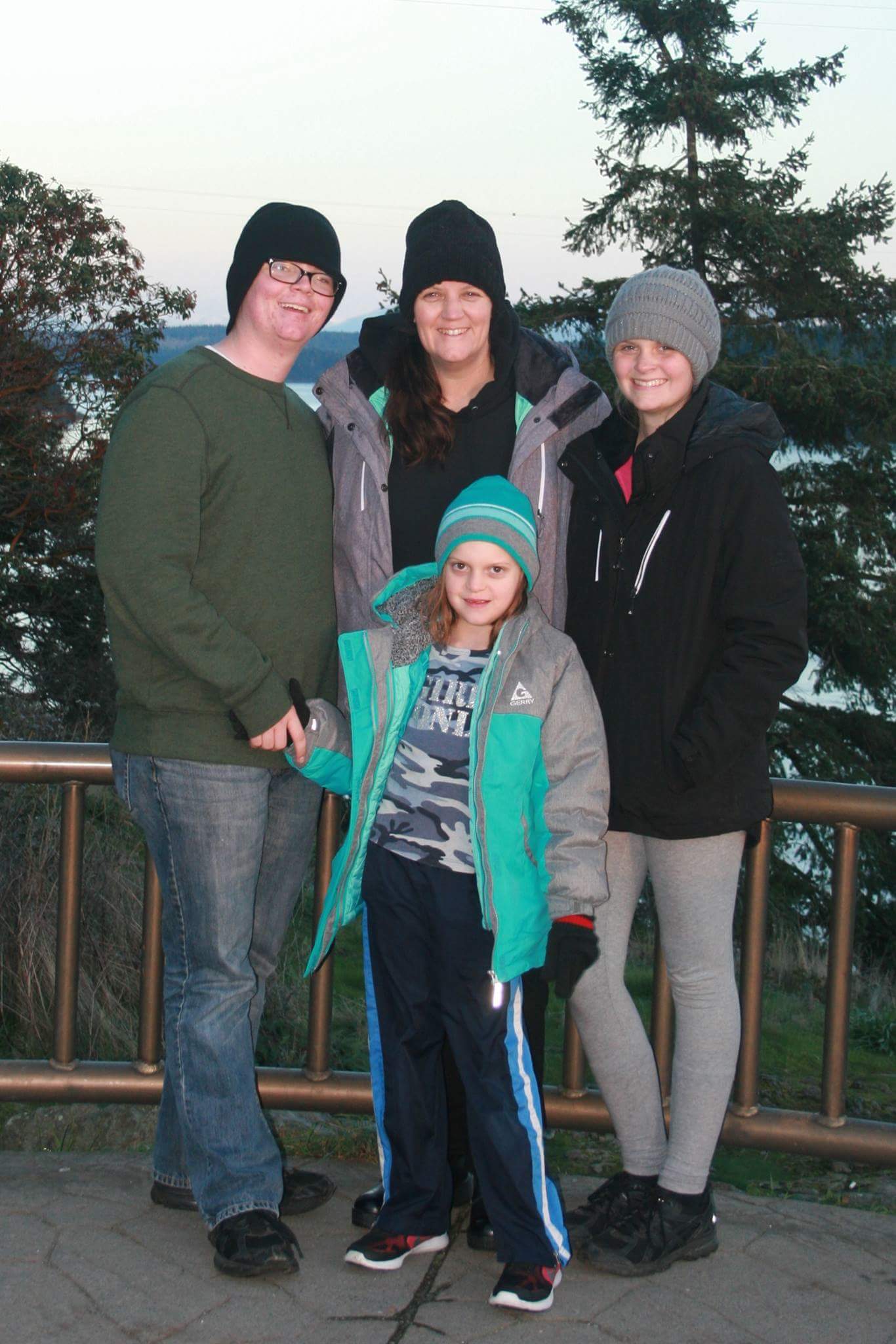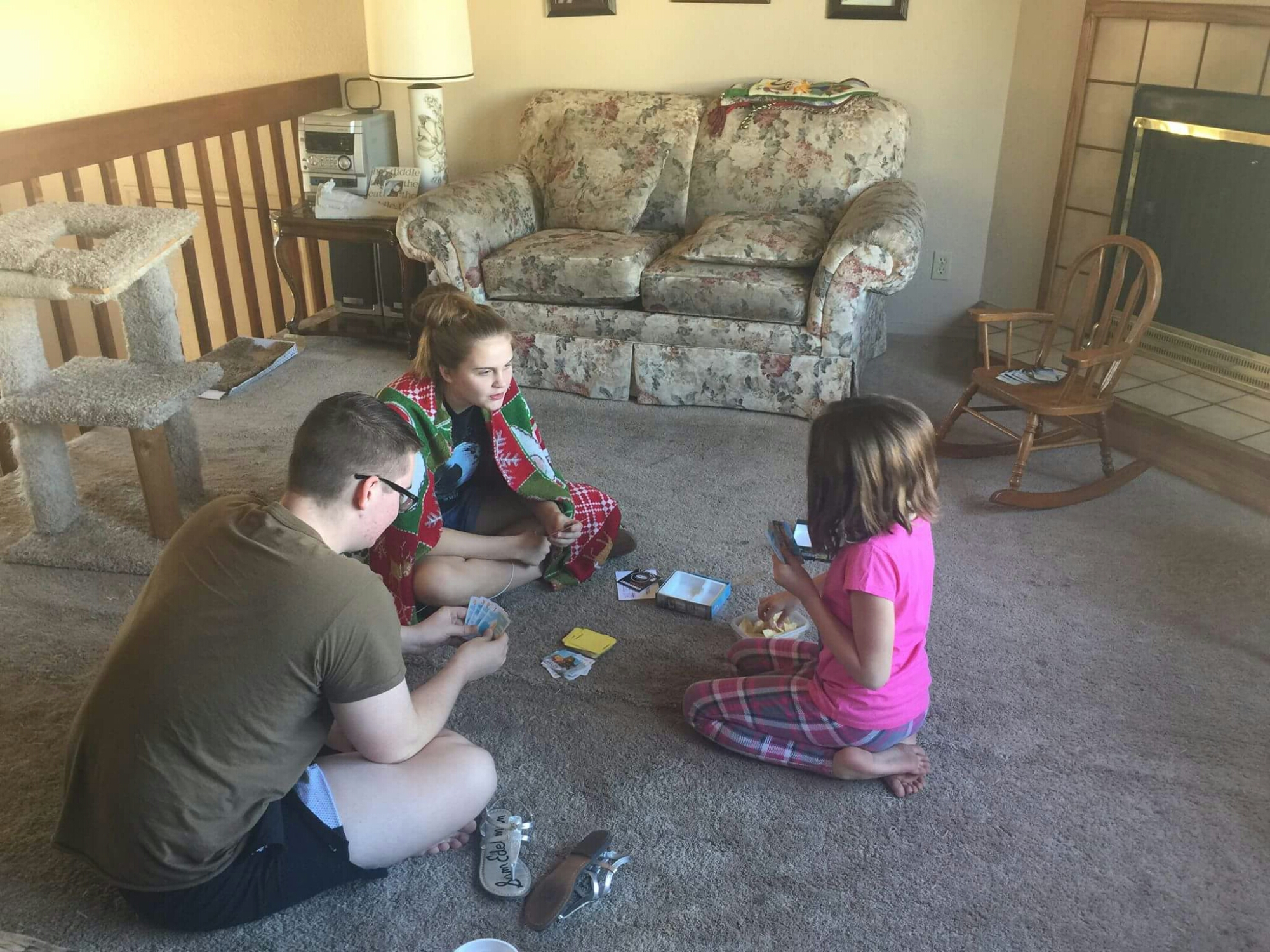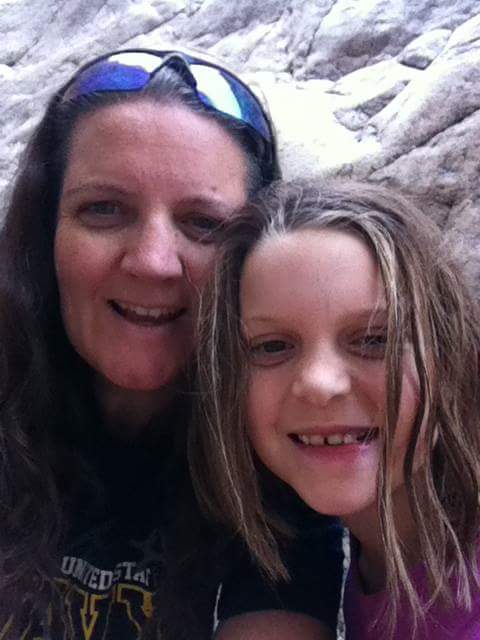Introduction
I tried, and failed, to come up with some catchy intro, so we’ll just have to make do with the plain vanilla one. I’m Becky. I blog at www.selfdirectedhomeschooler.com.
I’ve been married to my college sweetheart, Clint, since 1996. We have three kids: Jarrod is 18; Erica is 15; and Jillian is 8.
We’ve lived in Arizona for the past 11 years. Arizona is a fantastic state to homeschool in – the government doesn’t meddle and there is a ton of resources available for homeschoolers!
How long have you home educated for and what made you decide to do it?
Our first official year of homeschooling was the 2003-2004 school year. Jarrod, having a late fall birthday, didn’t make the cut-off to start kindergarten that year like many of his friends. I was sick and tired of being a slave to the preschool calendar, so I decided to spend that year as a trial run of homeschooling.
Way back when, I remember that my biggest concern was, “will he demonstrate that he will learn from me?” In hindsight, as a seasoned homeschooler, that concern was really actually silly. It completely discounted all of the learning he had done for the first four years and ten months of his life. But, back then, I was approaching homeschooling from a very schoolish mindset and I was focused on making sure I didn’t “miss anything” that he needed to know.
By the end of that year, Jarrod already knew nearly everything the school district reported that he needed to know at the end of kindergarten and a lot of stuff he needed to know by the end of first grade. I decided that my son being bored in school would be a recipe for disaster, so we kept going with the homeschooling…and we’ve just never stopped.

Briefly describe your home ed style. Do you have a ‘typical’ week and what does it include if so?
My kids are self-directed learners. They learn the same way we all learned before we reached school-age, and the same way we all learn as adults. They recognize a need or a desire to learn something or acquire a skill. We locate the best possible resources for them to learn the knowledge or acquire the skill of interest. They study or practice until their need or desire has been satisfied, and then they move onto the next thing.
It’s basically “just in time” learning – they learn what they need to know as they actually need to know it. A need to know something is personal; it typically ends up meaning that there’s a gap between where they are right now and where they want to be, and in order to bridge that gap, they must learn additional information, a new skill, or improve upon what they already know or can already do.
I don’t really have a “typical” week, other than having several standing commitments for activities and groups my kids are a part of throughout the week each week. We generally operate on a loose, flexible schedule.
What was your highlight of home ed last week?
For Jarrod, it was having him get through the second phase of his application to Praxis.
For Erica, it was seeing her finished product after a four session bronze sculpting class she took.
For Jillian, it was hearing her admit that maybe reading isn’t so bad after all.
And because I believe it is crucial for parents to be modeling lifelong learning themselves, for me it was publishing an article based on an interview I did with Isaac Morehouse, the founder and CEO of Praxis, and getting a hugely positive response to it. You can read the article, called “Rethinking College: How Isaac Morehouse and Praxis are Expanding the Options Our Young People Have” here: https://selfdirectedhomeschooler.com/rethinking-higher-education-isaac-morehouse-praxis-expanding-options-young-people/
What is your favourite thing about home edding your child/ren?
Do I have to pick just one thing?! In all seriousness, I was never that mom who just knew she was going to homeschool her kids. I came to it rather hesitantly, because I saw it as the better of two options the year my eldest turned five.
But I’m telling you, it’s been one of the absolute best decisions I have ever made. I have two teenagers who love me and want to spend time with me, rather than being embarrassed by me or pushing me away. I have three kids who genuinely like and love each other. All three of them have had lots of freedom and flexibility to pursue what makes them tick. All three of them have spent years making meaningful decisions about their lives, under our guidance. I got to be the one to see all the “ah-ha” moments. I wouldn’t trade the experiences I’ve had homeschooling my kids for anything.
What do you find most difficult and why?
13 years and counting into it, I don’t find homeschooling difficult at all. But, when I first started, feeling like I had to duplicate what Jarrod would be getting if he was in school, worrying about gaps in his education, and wondering if I was doing enough…that kind of mental and emotional stuff was probably the most difficult thing about homeschooling for me. It took me several years to work through that, and once I did, it was smooth sailing.
What advice would you give to other home educators?
First, don’t buy anything right away. Nearly everything you will buy at the beginning of your homeschooling journey will be a waste of money. You don’t need as much as you think you do, and most of what you do need can be found for free online.
Second, make sure you figure out what you believe about education before you start homeschooling. Everyone has heard about learning styles. Everyone probably knows that homeschooling exists on a spectrum from school-at-home to radical unschooling. But, what many people fail to consider is what they believe about education. By this, I mean your personal answers to questions like:
• Whose agenda should drive the scope and sequence of education?
• How would you define the roles of student and teacher?
• What makes a “good” education?
• What do you believe your kids need to know?
That’s not an exhaustive list, but it’s enough to get you started. Knowing what you believe about education will guide you to the right spot on the homeschooling continuum for you. Knowing what you believe about education will save you lots of money and aggravation because you won’t waste either on things that don’t resonate with you. I have free resources available on my blog for helping with this.
For traditional or eclectic homeschoolers, I have a free e-course called “7 Steps to Becoming a Confident, Successful Homeschooler” and that can be accessed at ogdenonline.leadpages.co/7-steps-to-becoming-a-confident-successful-homeschooler
For people with a more self-directed or unschooling bent, I have a free e-book called “The Fast Start Guide to Unschooling” and that can be accessed at selfdirectedhomeschooler.com
Find out more about us here:



